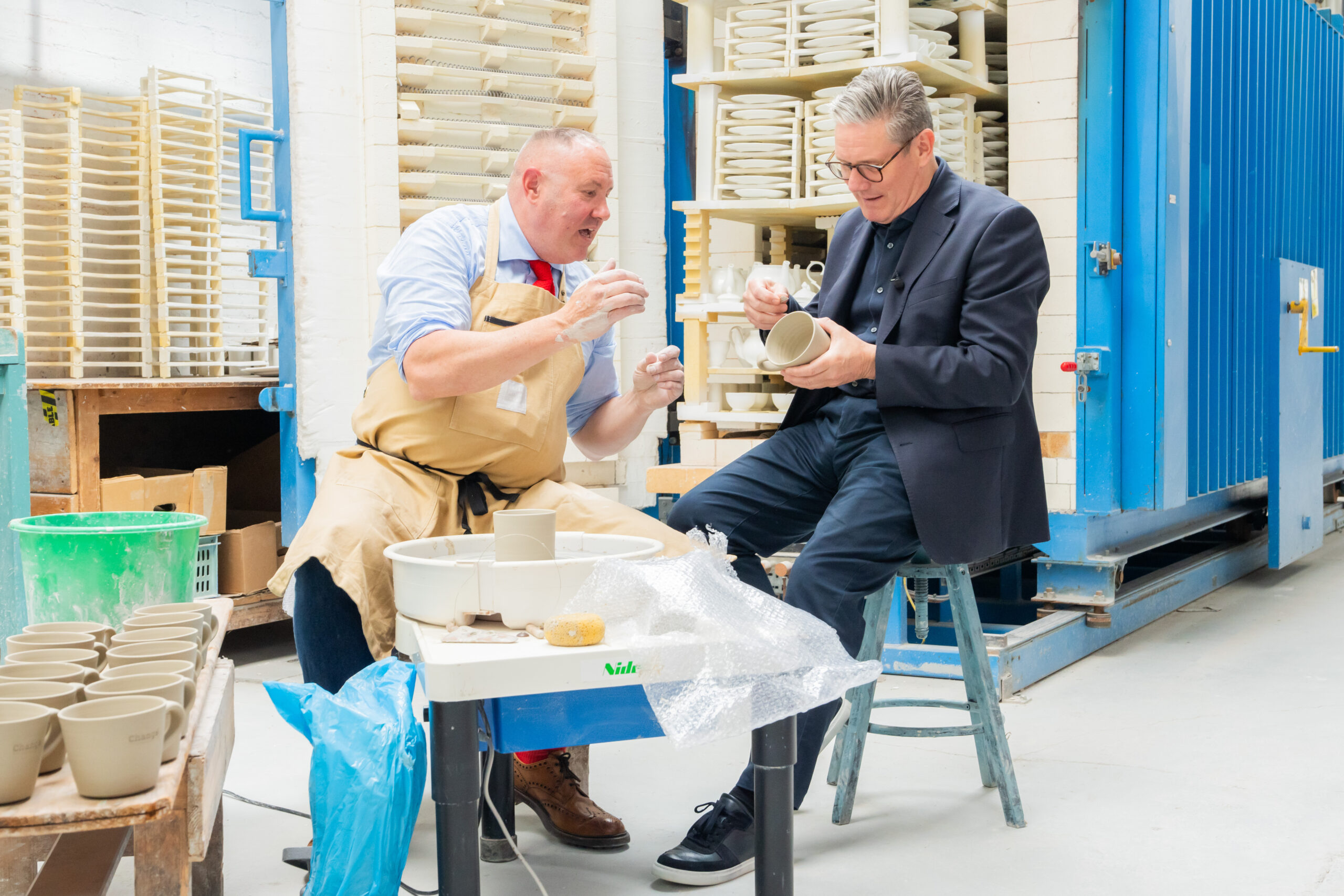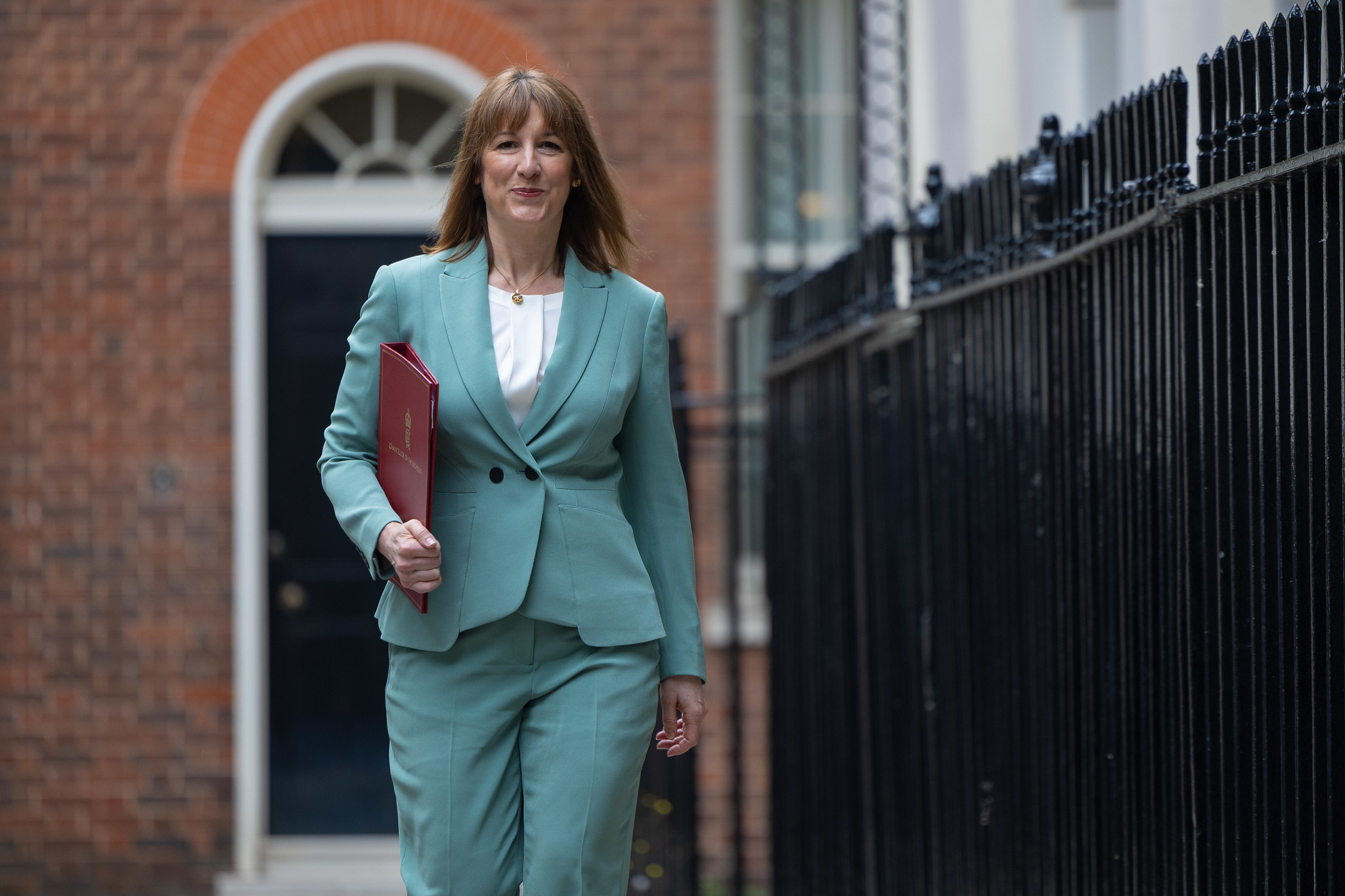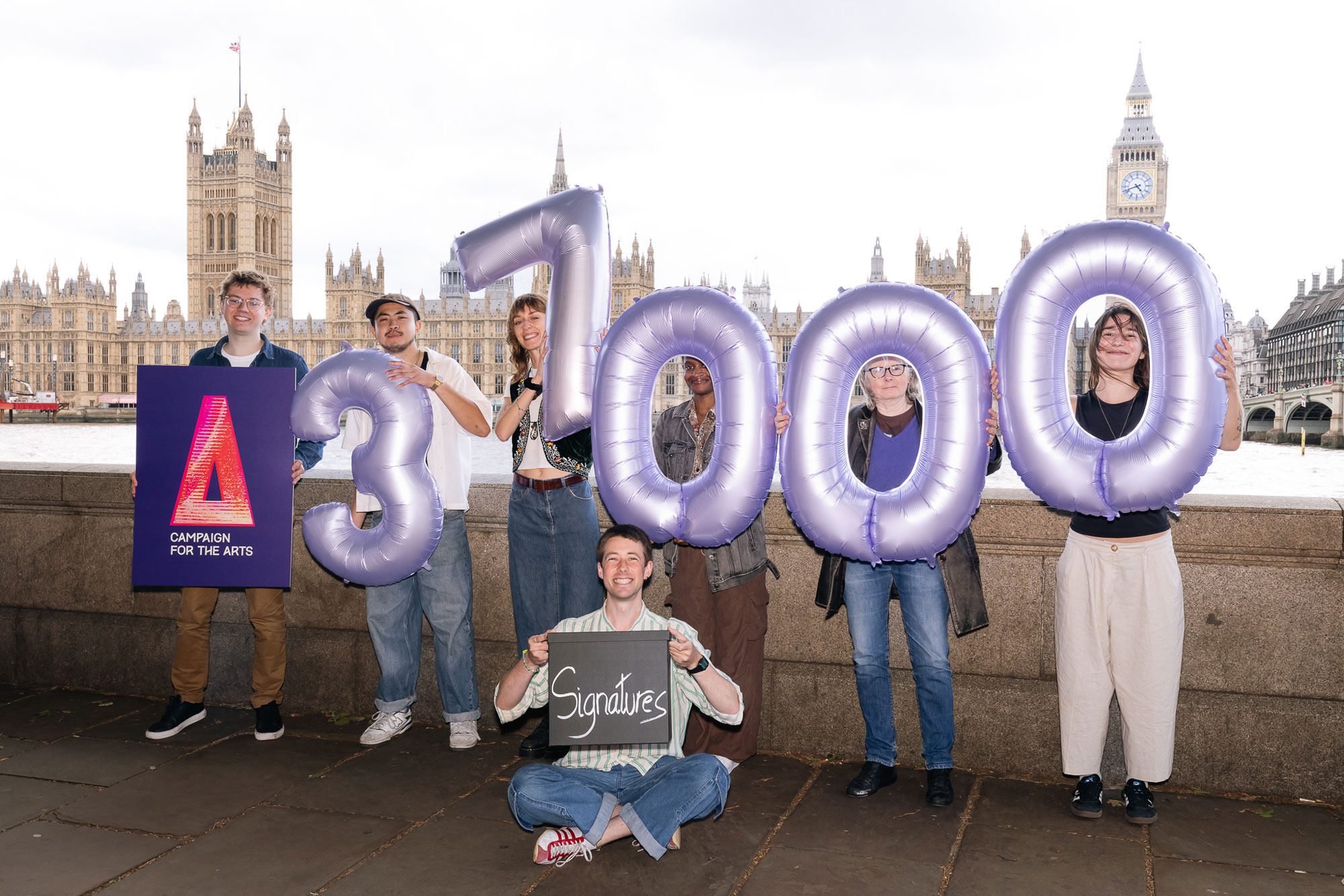Ahead of the UK General Election on 4th July 2024, political parties are publishing their manifestos.
Manifestos help all of us decide how to vote by outlining the policies and priorities of each party.
We know that this election is about a range of issues – but for all of our supporters, the arts really matter.
So what have the parties been pledging for the arts?
Jump to:
The Campaign for the Arts is staunchly non-partisan. We’ll always advocate for the arts, and never for any particular party or candidate.
Conservative Party
The Conservatives’ manifesto contains pledges that could affect:
Arts funding
- “Ensure our creative sector tax incentives remain competitive”
- “Extend the UK Shared Prosperity Fund for another three years … Expand the Long-Term Plan for Towns … Maintain the Community Ownership Fund for another three years … These schemes improve communities and support infrastructure as well as sports and cultural activities across the UK”
- “Continue to support museums and libraries across the country. Government has the power to leverage philanthropy for good causes and cultural institutions. We will work with individuals, businesses, charities and other networks to find opportunities to unleash this even further.”
Cultural access
- “[Launch] a review of the nighttime economy in England, looking at how to reverse the decline in pubs and clubs and how to make our towns and cities great places to go out.”
Cultural education
- “[Create] 100,000 more apprenticeships in England every year by the end of next Parliament … We will fund this by changing the law to close university courses in England with the worst outcomes for their students.”
- “Work with industry to deliver a dedicated flexible coordination service so that everyone who wants to work in the film, TV, gaming and music sectors can work on live productions whilst benefiting from at least 12 months of secure training.”
- “Support children in their transition to secondary school and ensure they continue to receive a broad and enriched education during and after-school, including via our multi-million pound Music Hubs.”
Creative industries
- “Ensure creators are properly protected and remunerated for their work, whilst also making the most of the opportunities of AI and its applications for creativity in the future.”
- “[Publish] a new Soft Power Strategy to support the role of our embassies and the British Council overseas.”
Public service media
- “The BBC should represent the perspectives of the entire nation with diversity of thought, accuracy and impartiality as its guiding principles. We will carefully consider the findings of the Funding Review ahead of the next Royal Charter and ensure it upholds these principles.”
- “Introduce a new complaints process for the BBC so the BBC does not mark its own homework.”
- “Support the BBC World Service”
CFTA analysis:
The Conservatives’ manifesto proposes a continuation of creative industry tax reliefs and centralised ‘levelling up’ funds, but does not address the sharp declines in local council, Arts Council and BBC funding that we have seen since the Conservatives took office in 2010.
It offers no new policy to address plummeting arts enrolment in secondary schools (47% at GCSE and 29% at A-level since 2010). The Conservatives have committed to “a broad and enriched education during and after-school”, but have dropped their 2019 pledge to deliver ‘Arts Premium’ funding for this purpose. There is no mention of the Cultural Education Plan announced in March 2022 – it was due before the end of 2023, but has still not been published.
While the Conservatives have pledged that “new teachers in priority areas and key STEM and technical subjects will receive bonuses of up to £30,000 tax-free over five years”, there is no indication that they would grant such bonuses to arts teachers, despite considerable shortages.
The Conservatives propose new apprenticeships, including in the film, TV, gaming and music sectors. However, these would be funded by the forced closure of some university courses in England. We are concerned that this could lead to an acceleration in the closure of arts courses and departments that we are already witnessing across the UK. More generally the manifesto contains no new proposals to stem the deepening funding crisis in Higher Education.
We welcome the Conservatives’ commitment to “ensure creators are properly protected and remunerated for their work” in the age of AI – they and the Green Party are the only parties to have made this a manifesto commitment.
Green Party
The Greens’ manifesto contains pledges that could affect:
Arts funding
- “Invest an extra £5bn over 5 years for local government spending on arts and culture to fund keeping local museums, theatres, libraries and art galleries open and thriving.”
- “Push for an increase in local government funding of £5bn per year to tackle the current under-funding crisis”
- “Give local authorities discretionary powers to exempt socially and economically essential local enterprises from business rates.”
Cultural access
- “Exempt cultural events, including everything from theatre and museum tickets to gigs in local pubs, from paying VAT.”
- “Protect the night-time economy through a review of planning regulations and giving local authorities the powers to ensure there is space for cultural life.”
Cultural education
- “Review assessment targets in schools so that arts and vocational subjects are treated equally within the curriculum”
Creative industries
- “Ensure that musicians have access to visafree travel to the EU through negotiating a reciprocal arrangement at the earliest possible opportunity.
- “Insist on the protection of the Intellectual Property of artists, writers and musicians and other creators. We would ensure that AI does not erode the value of human creativity and that workers’ rights and interests are respected”
Public service media
- “Push for rules on media to be tightened so that no individual or company owns more than 20% of a media market.”
- “Support local media through new grants to encourage the growth of a wider range of civicminded local news publishers”
CFTA analysis:
The Greens are the only party to have stated a specific figure for increased arts funding, and it’s striking that they propose allocating it to local government, where cuts to the arts have been deepest. An extra £1bn a year would – if distributed in England with additional funding for the other UK nations – restore councils’ culture, heritage and library budgets roughly to their size when the Conservatives and Liberal Democrats took office in 2010, adjusted for inflation.
The Greens have not made any pledges to restore Arts Council or BBC funding. Their and Plaid Cymru’s manifestos are the only ones not to mention the BBC.
The Greens’ proposed cuts in VAT for cultural events could bring down ticket prices, widening access. The current 20% VAT rate is almost double the average in the EU (10.3%).
Charities already receive up to 80% off business rates, but further powers to grant exemptions would be good for arts organisations, especially those that are not registered as charities.
Please note: The Scottish Greens are an independent political party. You can read their manifesto here.
Labour Party
Labour’s manifesto contains pledges that could affect:
Arts funding
- “Local government is facing acute financial challenges … To provide greater stability, a Labour government will give councils multiyear funding settlements and end wasteful competitive bidding.”
Cultural access
- “Improve access to cultural assets by requiring publicly funded national museums and galleries to increase the loans they make from their collections to communities across the country.”
- “Launch a new National Music Education Network – a one-stop shop with information on courses and classes for parents, teachers and children”
- “Put fans back at the heart of events by introducing new consumer protections on ticket resales.”
Cultural education
- “Support children to study a creative or vocational subject until they are 16, and ensure accountability measures reflect this.”
- “Launch an expert-led review of curriculum and assessment … Every child should have a broad curriculum with an excellent foundation in reading, writing and maths, and support to develop essential digital, speaking, and creative skills”
- “Act to create a secure future for higher education and the opportunities it creates across the UK … The current higher education funding settlement does not work”
Creative industries
- “Labour will implement our creative industries sector plan as part of our Industrial Strategy, creating good jobs and accelerating growth in film, music, gaming, and other creative sectors.
- “Help our touring artists“
- “Work across government to bring leading creative and cultural institutions together to increase the UK’s international clout.”
Public service media
- “Work constructively with the BBC and our other public service broadcasters so they continue to inform, educate and entertain people, and support the creative economy by commissioning distinctively British content.”
CFTA analysis:
Labour’s manifesto contains an acknowledgement of “acute financial challenges”, but does not commit to any new funding for local councils, the Arts Council or the BBC.
It is boldest on matters of cultural education – pledging a review of the curriculum and assessment, in part to re-emphasise the importance of creative skills and subjects. After the huge falls in arts enrolment since 2010 (47% at GCSE and 29% at A-level), this is extremely welcome.
It is not clear why Labour plans a National Music Education Network rather than a National Arts Education Network. Following years of declining arts education, information about provision will not be as valuable as new provision.
Labour’s manifesto concedes that “the current higher education funding settlement does not work”, but does not provide a solution to fix it. At a time when a growing number of arts courses are closing, this is concerning.
Labour has rightly foregrounded the creative industries in its plan for an industrial strategy to “back what makes Britain great”, acknowledging that there is “huge potential for growth”. This will depend partly on shoring up grassroots access to the arts – to that end, we welcome proposals to encourage greater loaning of cultural assets and to regulate ticket resales.
It is disappointing that there are no commitments to expand the role of the arts in health and wellbeing, despite the significant progress that has been made in this area in Labour-run Wales.
Liberal Democrats
The Liberal Democrats’ manifesto contains pledges that could affect:
Arts funding
- “Tackle the funding crisis facing local authorities, including by providing multi-year settlements, boosting the supply of social housing, and forging a long-term, cross-party agreement on social care.”
- “Protect sports and arts funding via the National Lottery.”
Cultural access
- “Maintain free access to national museums and galleries.”
- “Require at least 80% of on-demand TV content to be subtitled, 10% audiodescribed and 5% signed.”
- “Protect fans from being exploited by ticket touts by implementing the Competition and Markets Authority’s recommendations to crack down on illegal ticket resale.”
- “Enhance powers over community assets to help local authorities protect pubs, community farms, and other vital infrastructure.”
Cultural education
- “Include arts subjects in the English Baccalaureate and give power to Ofsted to monitor the curriculum so that schools continue to provide a rich curriculum including subjects like art, music or drama.”
- “Expand provision of extracurricular activities, such as sport, music, drama, debating and coding, starting with a new free entitlement for disadvantaged children.”
- “Establishing a review of higher education finance in the next Parliament to consider any necessary reforms in the light of the latest evidence of the impact of the existing financing system on access, participation and quality”
Creative health
- “Expanding social prescribing and investing in community projects that bring people together to combat loneliness.”
Creative industries
- “Promote creative skills, address the barriers to finance faced by small businesses, and support modern and flexible patent, copyright and licensing rules.”
- “Negotiate free and simple short-term travel arrangements for UK artists to perform in the EU, and European artists to perform in the UK.”
- “Establish creative enterprise zones to grow and regenerate the cultural output of areas across the UK.”
Public service media
- “Protect the BBC, S4C, BBC Alba and Channel 4 as independent, publicly owned, public service broadcasters.”
- “Support independent, Leveson-compliant regulation to ensure privacy, quality, diversity and choice in both print and online media, and proceed with Part Two of the Leveson Inquiry.”
- “Properly fund the impartial BBC World Service from the Foreign Office budget and restore its global reach.”
CFTA analysis:
The Liberal Democrats have pledged to protect arts funding from the National Lottery (though not from central government) and to “tackle the funding crisis facing local authorities”. They have not committed to reverse the real-terms cuts to arts funding we have seen at national and local levels since the Lib Dems last entered government in 2010.
We wholeheartedly welcome their pledges to include arts subjects in the curriculum, to expand provision of extracurricular activities including music, drama and debating, and to address barriers to access for disadvantaged children specifically.
While the Lib Dems have acknowledged the issue of higher education finance, it is disappointing that they are only committing to a review, sometime “in the next Parliament”. An increasing number of arts courses are being scaled back or shut down, and solutions are urgently needed.
Apart from Plaid Cymru in Wales, the Lib Dems are the only party to have made it a manifesto commitment to promote the role of the arts in health and wellbeing, and to maintain free access to national museums and galleries.
We welcome the Liberal Democrats’ especially strong commitment to the BBC, S4C, BBC Alba and Channel 4 as “independent, publicly owned, public service broadcasters”.
Plaid Cymru
Plaid Cymru’s manifesto contains pledges that could affect:
Arts funding
- “Plaid Cymru is deeply concerned and strongly opposed to the cuts to Welsh cultural organisations … Having long recognised that Wales is under-funded by the UK Government at Westminster, Plaid Cymru support additional funding being provided”
Cultural access
- “We remain committed to the policy of free entry to our national museums. We will also work with the Urdd and Eisteddfod Genedlaethol Cymru to ensure free tickets are available for low income families”
- “We will promote an increase in Welsh medium arts provision and activity, and the development of career pathways in the arts in the Welsh language”
- “A number of important and significant Welsh artefacts are held outside Wales, such as the Mold Gold Cape, the Moel Hebog Shield and the portrait of John Ystumllyn. Plaid Cymru believes that these should be returned to Wales”
Cultural education
- “For years, Plaid Cymru has been raising concerns about the higher education sector, warning that it is in crisis and in need of urgent support … Our ambition remains to make University education free again for all, and we will work with Universities to develop a plan to make them financially viable so that this can become a genuine option.”
Creative health
- “Playing sport and participating in arts and culture is a significant part of our well-being. Recognising the positive effects that this has upon individuals and communities, we will promote participation and engagement, looking to fund this from crossgovernmental sources.”
Creative industries
- “We will instigate a Welsh Freelancers Fund to support the creative sector. We will apply the lessons learned from the Basic Income for the Arts scheme in the Republic of Ireland”
- “Wales should be enabled to participate in pan-European programmes, supporting our university and creative sectors in particular … We will examine how we can participate and benefit from the international Creative Europe programme”
- “Plaid Cymru will continue to push for Wales to be represented on the international stage at Eurovision.”
Public service media
- “Plaid Cymru support the devolution of broadcasting powers to Wales”
- “We want to see the establishment of an independent Broadcasting Authority for Wales and see no reason why governance of S4C should be in the hands of Westminster”
CFTA analysis:
Plaid Cymru has been unequivocal about its opposition to arts cuts, but has not pledged to provide extra funding from existing Welsh Government budgets – only to advocate for increased funding settlements from Westminster.
The party has placed a strong focus on Welsh language provision and activity, and on the return of Welsh artefacts to Wales.
We wholeheartedly welcome their commitment to maintain free entry to national museums.
Plaid Cymru is the only party to have made an explicit manifesto commitment in support of freelancers in the arts. However is not currently clear how the Welsh Freelancers Fund would work, to what extent it would resemble the Basic Income scheme trialled in Ireland, or how many freelancers would benefit.
Reform UK
Reform UK’s manifesto contains pledges that could affect:
Arts funding
- Save £5 in every £100 … This will save £50 billion per year, ensure tax cuts and boost our economy.”
Cultural access
- “Replace the 2010 Equalities Act … scrap Diversity, Equality and Inclusion (DE&I) rules”
Cultural education
- “Universities Must Provide 2-Year Undergraduate Courses“
Public service media
- “The out-of-touch wasteful BBC is institutionally biased. The TV licence is taxation without representation. We will scrap it.”
CFTA analysis:
Reform UK’s manifesto doesn’t mention the arts or creative industries at any point.
It contains no solutions to the funding crisis in higher education, aside from suggesting that less higher education (e.g. via 2-year undergraduate courses) would reduce debt.
Reform UK pledges a “national plan” for social care, after which “more funding will be needed”. At that point, reduced pressures on local authority finances could enable councils to restore their crucial investment in the arts and culture, which has fallen by 40-50% in real terms since 2010.
Across government as a whole, Reform UK proposes to cut “wasteful” spending by £50 billion a year. Given the total absence of arts policy in their manifesto, there is a concerning possibility that they may consider cultural investment ‘wasteful’.
The proposed abolition of the BBC’s funding model without a suggested replacement would be calamitous for wider public access to the arts.
The weakening or scrapping of legal protections for Diversity, Equality and Inclusion risks worsening barriers to access and the already significant inequalities of opportunity in the arts and cultural industries.
Scottish National Party
The SNP’s manifesto contains pledges that could affect:
Arts funding
- “SNP MPs will stand firmly against the Westminster consensus on continued cuts and demand increased investment in our vital public services.”
- “Three–year detailed spending plans – to support detailed planning and improve clarity for devolved administrations.”
Cultural education
- “Rejoining the EU would deliver … re-entry to the Erasmus+ scheme, widening educational opportunities for Scotland’s future generations”
- “Defend free university tuition in Scotland”
Creative industries
- “Rejoining the EU would deliver … access to the Creative Europe scheme, supporting culture sector cooperation and boosting economic potential of our creative industries”
- “To drive economic growth … we would introduce a lower rate of VAT for hospitality and tourism sectors”
Public service media
- “Devolve broadcasting powers to enable broadcasters who have a public service remit to better meet the interests of Scottish audiences.”
- “Support increased investment in Scottish broadcasting. Until devolved, we will continue to push all public service broadcasters to invest a far fairer share of spending on production in Scotland.”
- “Give Gaelic broadcasting a statutory parity of esteem with Welsh language broadcasting. The UK Government must rectify the disparity between Gaelic and Welsh language caused by the recent Media Bill and ensure proportional funding for BBC Alba.”
CFTA analysis:
The SNP’s manifesto references the creative industries as one of the “extraordinary” things about Scotland, but contains little in the way of specific pledges for the creative industries, or for access to art and culture.
Their flagship arts pledge, to increase the Scottish Government’s investment in culture by £100m a year by 2028, is conspicuously absent, despite looming multi-year funding decisions for Creative Scotland. Analysis by the Campaign for the Arts shows that the current culture budget is 6% smaller in real terms than it was in 2022/23.
The manifesto does express support for increased public investment across the board, but presents this as a “demand” that the SNP will need to make of Westminster. There is nothing to reassure cash-strapped local councils, even though their grant funding is the responsibility of the Scottish Government at Holyrood.
The SNP’s manifesto is most detailed in the area of public service media – calling for greater devolution of broadcasting powers and increased investment in Scottish broadcasting, including to BBC Alba.
The only other significant pledge for the creative industries specifically – access to the Creative Europe scheme – is contingent on an independent Scotland rejoining the EU. It is likely that the pledge to lower VAT on hospitality and tourism sectors would also benefit the cultural and creative industries.



